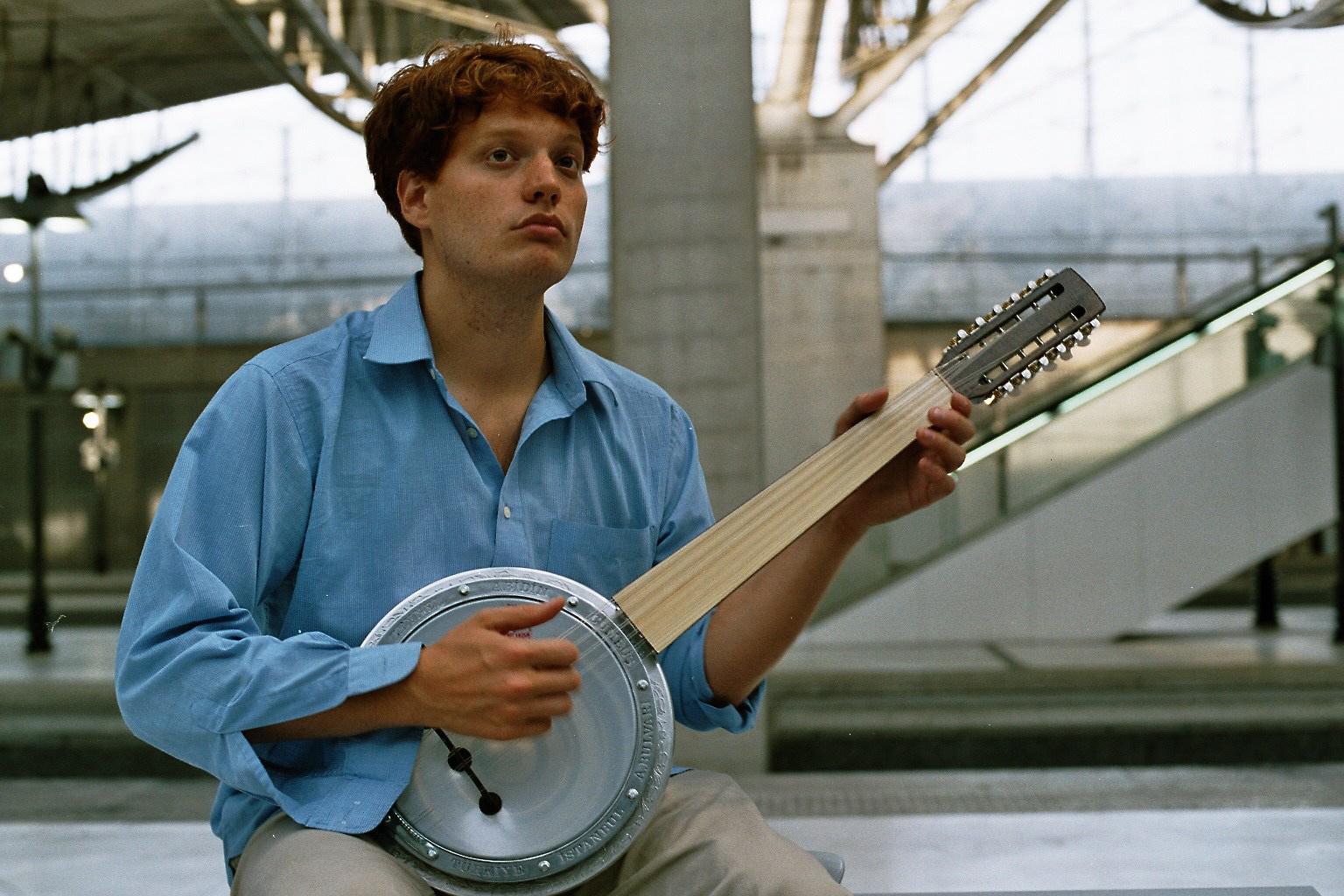Tuesday, December 4th, 2012

Written by Tim Hansen
Composer Christopher Trapani had a typically active upbringing for an aspiring musician growing up in New Orleans: playing guitar in coffeehouses one day and gospel piano in a Methodist church the next; attending orchestral concerts of the Louisiana Philharmonic, while working on his own creations at the New Orleans Center for the Creative Arts.
It’s unsurprising: New Orleans has, of course, a reputation for being the kind of place where a kid cuts their teeth on everything from bluegrass to Beethoven, producing some of the most innovative and talented musicians in the country.
There is nothing standard about Trapani’s art, however. Perhaps owing to the eclecticism of his hometown, Trapani exhibits a genuine talent for adopting esoteric musical subcultures and adapting them to his own needs, creating a unique and sophisticated compositional voice. Intricately crafted orchestrations and subtle microtonal inflections are key characteristics of his work, which are undoubtedly the result of several years spent in Paris and Istanbul during the young composer’s formative years.
“I landed in Paris at age twenty-three with a love for the French tradition but not a particularly extensive knowledge of current French trends,” says Trapani. “I discovered spectral music incrementally, just by hearing one concert after another, and its chiseled colors and microtones started to find their way into my music”.
It was in Paris, too, that Trapani first encountered Turkish music, a tradition steeped in non-diatonic and microtonal tuning. A serendipitous encounter with the classical Arabic ensemble Al-Kindi left the composer “blown away” as it offered a fresh approach to microtonal composition. “In contemporary music circles one often hears that microtonal music has to be slow, that nuances of pitch take time to speak,” Trapani explains, “but Ottoman classical music is full of fast microtonal passages, and a sophisticated theory linked to just intonation ratios.”
However, it was also while Trapani was in Europe that his hometown suffered one of the most devastating disasters in memory: Hurricane Katrina. The event profoundly affected Trapani; aside from the heartache of witnessing human suffering in the storm’s aftermath, the composer, like many others, feared that the unique culture of New Orleans would be irreparably damaged.
In this dark time, Trapani turned to his music, and in doing so, planted the seeds for the project that would eventually see him awarded a grant from the Jerome Fund: the song cycle Waterlines.
“It was this overwhelming sense of potential loss,” says Trapani, “that drove me to write ‘Can’t Feel at Home,’ the first song in the cycle, in the fall of 2005. I put the piece aside until 2012, but New Orleans, memory, and loss continued to play a huge role in the pieces I wrote over the next few years.” As the idea matured, Trapani created more songs that drew from old bluegrass tunes written around the time of another disaster that befell New Orleans, the 1927 Mississippi floods.
Trapani describes Waterlines as a project “seven years in the making”, for although the initial impetus came in 2005, he felt that he couldn’t tackle the project properly until recently for a number of reasons.
“Finding a singer was the real challenge,” says Trapani. “Waterlines is filled with allusions to old blues and country records, and needs a performer who’s both familiar with these gestures and capable of imitating them without irony. On the other hand, there’s a lot of intricacy in the techniques and tuning of the ensemble writing; players need to be familiar with the style of contemporary French music. With Daisy Press and the Talea Ensemble—and myself as well, playing Appalachan dulcimer, steel-stringed guitar, and a fretless Turkish banjo—I think we’ve found the perfect combination for the premiere.
“In addition to those practical concerns, there are certainly political, historical, and even emotional resonances to Waterlines that I suspect might be more immediate and apparent to American listeners. Its texts speak about the 1927 Mississippi River flood, but that natural disaster is recast in a new context, with the unmentioned ghost of Katrina (and now Sandy, too, perhaps) looming in the background.”
Waterlines receives its premiere at Mannes College of Music.
150 W 85th Street / New York, NY on December 14th. Admission is free.